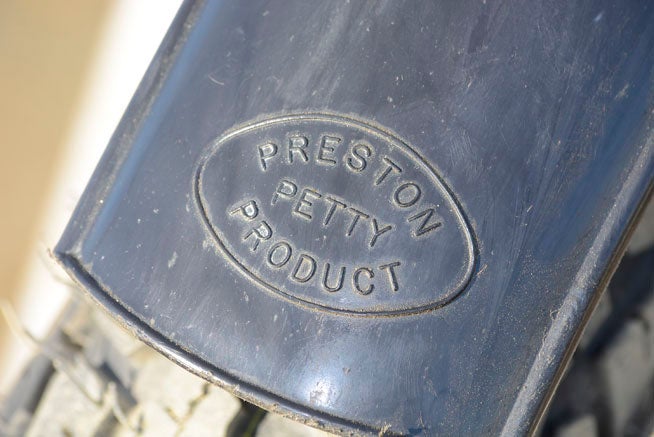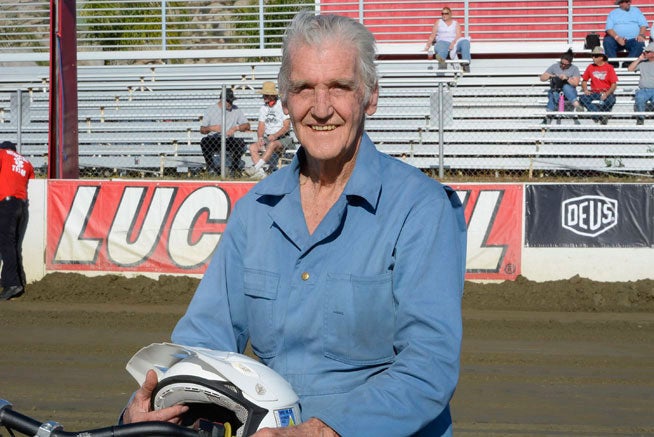
While continuing to develop his plastic fenders, Petty had begun competing in the International Six Day Trials events in Europe, and he was a success in his ISDT debut, riding a DKW to a silver medal in Garmisch-Partenkirchen, West Germany in 1969. Subsequent ISDTs in Spain (1970) and while riding for Team USA in Great Britain (1971) ended with disappointing DNFs.
“I was on our Vase team in 1971, and my sponsor, Ted Lapadakis, had put me on a Puch,” Petty recounts. “The only one of us on a Puch to last all six days was Billy Uhl, and that was because he wasn’t considered an important enough rider for Puch to put their ‘specially hardened gears’ in his transmission. He had regular production gears.”
Worse yet, Petty had brought over a load of his new plastic fenders with him to Europe in ’71 but had failed to generate any interest in them among the Europeans—or so he thought. It wasn’t until a few months later that British specialty motorcycle manufacturer Eric Cheney called Petty and asked for another load of the fenders. The Europeans were amazed at the durability of the product, and Petty was soon inundated with orders. To fill the demand, he moved to Oregon, set up a factory and proceeded to ramp up production to a zenith of 2000 fenders per day.
By 1980, Petty was ready to retire after a long and successful run, and he sold the plastic business on an installment basis. It should have resulted in a happy ending, but life isn’t always so kind. The deal fell through, and Petty lost millions when the buyer went bankrupt. It led to some tough times, but Petty says there’s no use in crying over it today.
“I made a number of mistakes, let’s leave it at that.” Petty says, and then adds, “When you get screwed, you’ve got to have two people involved, the screw-er and the screw-ee. If either one of those is missing, then you didn’t get screwed.”
Rather than try to rebuild his empire, Petty elected instead to get into micro-computers, which would go on to become as common a household product as televisions and washing machines.

“As early as 1977, I was working with a guy who was going to machine some of my No-Dives (fork torque arms devices) who told me, ‘Hey, I’ve got this friend at work who is in a computer club, and he is working on making his own computer and needs a case made for it. He doesn’t have any money. All he can do is give you stock in his business. You should come over to his garage and look at it.’ So I did, and the guy’s case design looked ugly to me, so I passed on it. The guy’s name was Steve Jobs, and the company was Apple. Of course, that didn’t mean anything back then.”
 Your Privacy Choices
Your Privacy Choices